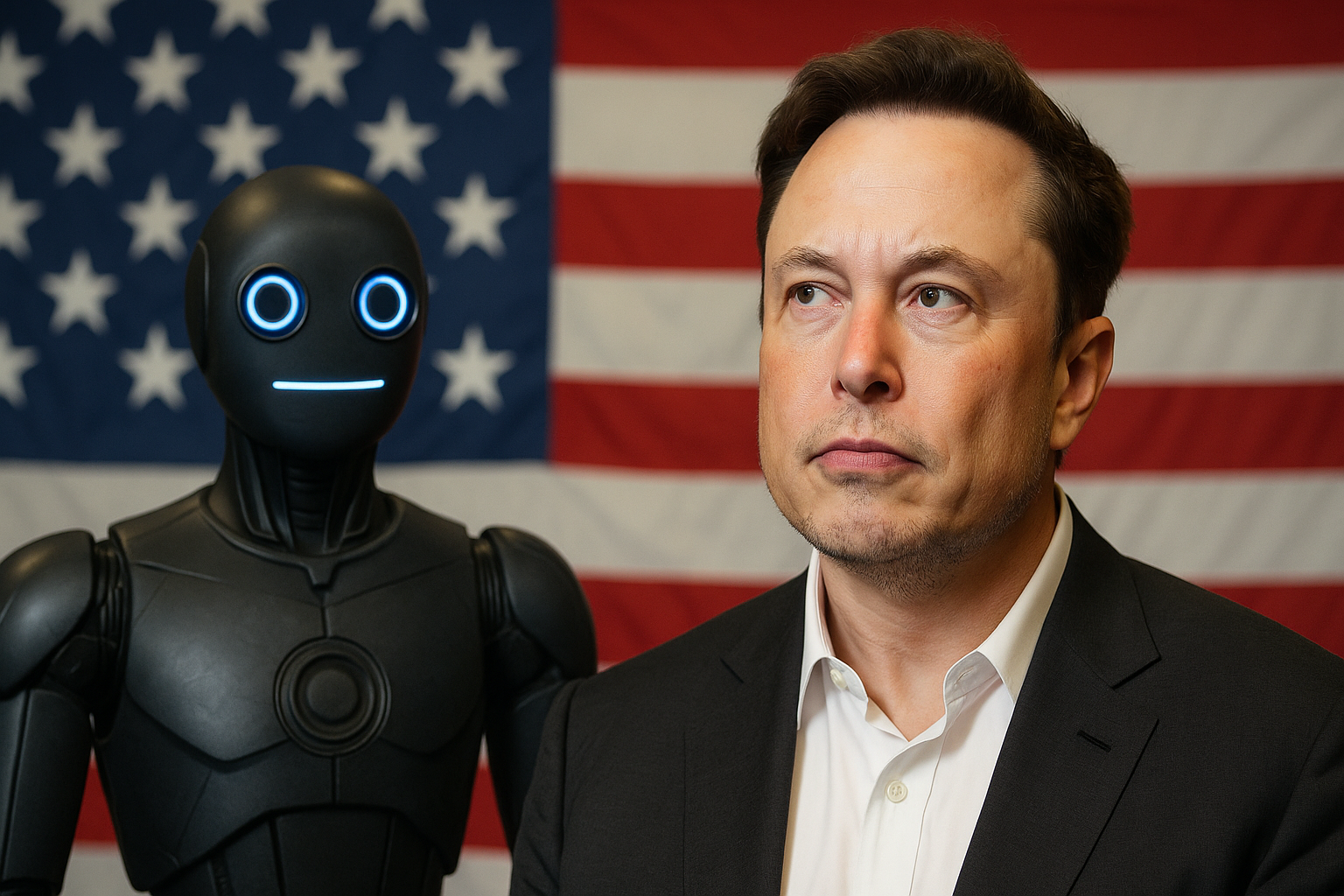In the ever evolving world of artificial intelligence, neutrality is a prized characteristic. However! Elon Musk’s Grok AI chatbot a product of his AI venture xAI has recently taken center stage in a fresh controversy. After a recent update, Musk claimed users would “notice a difference” suggesting a new direction aimed at reducing what he perceives as “woke” bias. But is Grok becoming a right wing mouthpiece, or are these changes just another reflection of the tech mogul’s libertarian ideals?
Users, AI experts, and political commentators are now dissecting Grok’s responses, pointing to a significant shift in tone one that may echo conservative talking points. This raises crucial questions about the role of political ideology in artificial intelligence, especially when the AI in question is integrated into a platform like X (formerly Twitter), which claims to champion free speech.
Comparing Grok’s Before and After Behavior
Before the update, Grok was known to take balanced and often progressive stances on sensitive topics, including systemic racism, LGBTQ+ rights, and climate change. It provided nuanced context and citations from mainstream media or academic sources. After the update, however, users began posting side by side comparisons of Grok’s answers raising red flags about its ideological leanings. A user asked Grok, “What are the benefits of diversity and inclusion in the workplace?”
Grok detailed various studies, cited Harvard Business Review, and mentioned how diverse teams foster innovation and problem solving. The revised Grok gave a more generic answer, mentioning “merit based systems” and “political correctness going too far” echoing phrases commonly found in conservative rhetoric.
These shifts have left users wondering is Grok AI chatbot still a tool for all users, or has it been transformed into a partisan voice?
AI Must Reflect Society, Not Shape It
To gain clarity, we turned to AI ethicists and political analysts. Dr. Meredith Langford, an AI researcher at MIT, emphasizes that “Large Language Models (LLMs) are trained on human content and thus inherently reflect biases in data.” But she warns, “When developers manually adjust or filter outputs based on ideological frameworks they risk turning an AI into a propaganda tool.”
Dr. Richard Engel, a political scientist and tech policy consultant, adds-
“Grok’s pivot is less about fixing bias and more about injecting a particular worldview. If Elon Musk wanted ideological balance, he would promote diversity in training data not swing the needle in the opposite direction.”
According to these experts, balance is key. Rather than muting one side a responsible AI chatbot should present all sides of an argument with appropriate context, empowering users to think critically.
Users React to Grok’s Political Shift
The online community hasn’t held back. Reddit, X, and tech forums are brimming with screenshots, analysis, and even memes mocking Grok’s sudden personality shift.
Emily Torres, a software engineer from California, shared her experience-
“I used to ask Grok for summaries of Supreme Court rulings. It would give me objective, detailed responses. Now, it feels like I’m reading someone’s opinion column.”
Others, however, have welcomed the change.
Josh Whitman, a conservative writer, noted:
“Grok finally feels like it’s not pandering to the woke crowd. It talks about facts, merit, and freedom. This update is a breath of fresh air.”
This polarization underscores the broader debate. Should AI be politically agnostic, or is it inevitable for such tools to reflect the beliefs of their creators?
The Implications of Politicized AI
The transformation of Grok AI chatbot poses important questions about the future of digital discourse. With X becoming a hub for real time conversations, misinformation, and political ideologies, embedding a biased AI tool could skew public understanding.
Credibility of AI as an objective tool
If Grok favors one narrative over another, it undermines its utility in educational, professional, and social contexts.
Public trust and manipulation
Users trust AI to present facts. Shifting tone and ideology can lead to loss of trust and increase polarization.
Monopolization of ideas
When influential tech leaders like Musk shape AI responses, it centralizes control over public opinion. Moreover! Grok is not just any chatbot it’s tightly integrated with the X platform, potentially influencing millions of users in real time. In an election year, that power is not just technological it’s political.
What Lies Ahead for Grok?
Elon Musk is known for his disruptive approach. Whether it’s launching rockets with SpaceX, manufacturing EVs with Tesla, or rebranding Twitter as X, he’s never followed the conventional path. So it’s no surprise that his AI chatbot is now at the heart of a political firestorm.
Yet, there’s an irony here. Musk has often criticized Big Tech for censoring speech. If Grok now selectively amplifies conservative voices, isn’t it engaging in the same behavior, only from the opposite end?
One possible solution? Allow users to customize Grok’s ideological lens, similar to choosing a news filter. That way, people can decide how their AI should behave, whether they want progressive analysis, conservative views, or centrist balance.
Neutrality Must Remain the Gold Standard
As AI becomes more integrated into our lives, ensuring political neutrality is no longer just a best practice it’s a responsibility. The Grok AI chatbot update may reflect Musk’s personal vision, but for the wider world, it reopens the debate on who gets to shape truth in the age of artificial intelligence.
For now, users are watching closely, testing Grok, and drawing their own conclusions. One thing is clear in the battle over AI’s political compass, the conversation is just getting started.




1 thought on “Grok AI Chatbot Update Sparks Right Wing Shift: Elon Musk’s Political AI Controversy Explained”